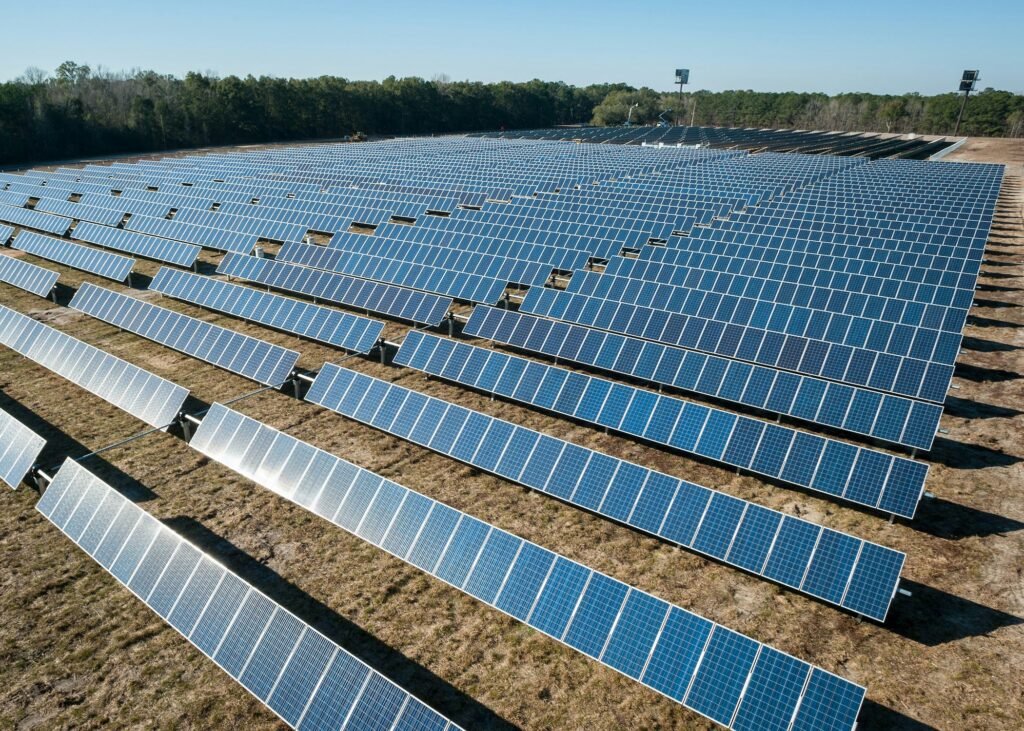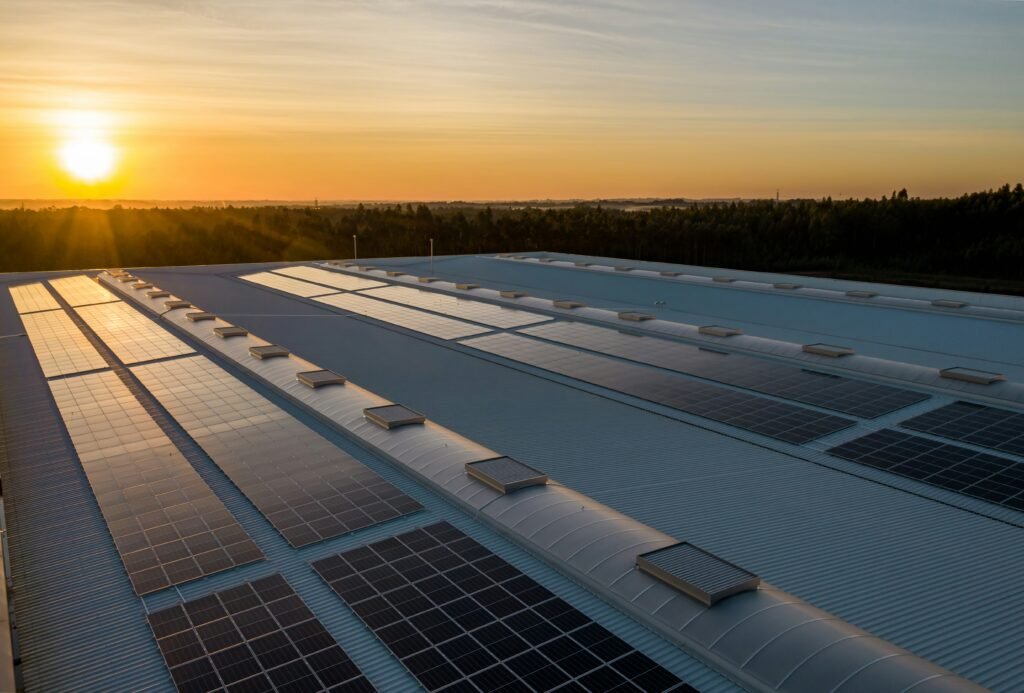Welcome to “The Ultimate Guide to Solar Energy for Homeowners,” where we will explore the top 10 benefits of using solar energy in your home. From saving money on your energy bills to reducing your carbon footprint, solar energy offers a multitude of advantages for homeowners looking to be more environmentally conscious and cost-effective. Let’s dive into how solar energy can benefit you and your home!
The Ultimate Guide to Solar Energy for Homeowners
Have you ever considered powering your home with solar energy? You may have questions about how it works, the benefits, and whether it’s the right choice for you. In this ultimate guide, we will cover everything you need to know about solar energy for homeowners.

Getting Started with Solar Energy
So you’re thinking about going solar? That’s great! The first step is to understand how solar energy works and what components are needed to set up a solar energy system for your home.
Solar energy is harnessed by installing solar panels on your roof or in your yard. These panels are made up of solar cells that convert sunlight into electricity through a process called the photovoltaic effect. This electricity is then used to power your home, reducing your reliance on traditional grid electricity.
Benefits of Solar Energy for Homeowners
Let’s dive into the top 10 benefits of using solar energy to power your home. From cost savings to environmental impact, solar energy offers a range of advantages for homeowners.
| Benefits | Description |
|---|---|
| 1. Cost Savings | By generating your own electricity, you can significantly reduce your monthly utility bills. |
| 2. Renewable Energy | Solar energy is a sustainable and renewable source of energy that doesn’t deplete natural resources. |
| 3. Environmental Impact | Switching to solar energy can reduce your carbon footprint and help combat climate change. |
| 4. Energy Independence | With solar panels on your property, you are less reliant on the grid and are more self-sufficient. |
| 5. Increased Property Value | Homes with solar energy systems tend to have higher resale values and are attractive to buyers. |
| 6. Tax Incentives | Many governments offer tax incentives and rebates to homeowners who invest in solar energy systems. |
| 7. Low Maintenance | Solar panels require minimal maintenance and have a long lifespan, providing years of clean energy. |
| 8. Energy Security | Solar energy is a reliable source of power, even during grid outages or emergencies. |
| 9. Job Creation | The solar industry creates jobs in installation, maintenance, and manufacturing, boosting the economy. |
| 10. Community Impact | By adopting solar energy, you become a part of a growing community committed to sustainability and clean energy. |
Is Solar Energy Right for You?
Now that you know the benefits of solar energy, you may be wondering if it’s the right choice for your home. Consider the following factors to determine if solar energy is a good fit for your property:
Location and Climate
One key factor to consider is your location and the climate in which you live. Solar panels are most effective in areas with abundant sunlight, so if you live in a sunny region, you can maximize the benefits of solar energy. However, even in areas with less sunlight, solar panels can still be a viable option for generating electricity.
Roof Space and Orientation
The size and orientation of your roof will also impact the efficiency of your solar energy system. Ideally, your roof should have enough space to accommodate the solar panels and be facing south for optimal sunlight exposure. If your roof is shaded or not well-suited for solar panels, ground-mounted systems may be an alternative.
Energy Usage and Goals
Take a look at your energy usage and goals to determine if solar energy can meet your needs. If you have high energy bills and are looking to reduce your reliance on the grid, solar energy can help you achieve energy independence and cost savings in the long run.
Financial Considerations
Investing in a solar energy system requires an upfront cost, but the long-term savings can outweigh the initial investment. Consider the available financing options, tax incentives, and rebates to make solar energy more affordable for your home.
Maintenance and Longevity
While solar panels are low maintenance, they do require periodic cleaning and inspections to ensure optimal performance. Understanding the maintenance requirements and the lifespan of solar panels can help you make an informed decision about investing in solar energy.
Types of Solar Energy Systems
There are different types of solar energy systems available for homeowners, each with its unique features and benefits. Understanding the differences between these systems can help you choose the right one for your home:
Grid-Tied Systems
Grid-tied systems are the most common type of solar energy system for homeowners. These systems are connected to the grid and allow you to use solar energy when it’s available and switch to grid power when needed. Grid-tied systems can also feed excess electricity back into the grid, reducing your utility bills further.
Off-Grid Systems
Off-grid systems are ideal for homeowners who want to be completely independent from the grid. These systems usually include batteries for energy storage, allowing you to use solar energy day and night. Off-grid systems are common in remote areas without access to the grid.
Hybrid Systems
Hybrid systems combine the features of grid-tied and off-grid systems, offering the flexibility of both. These systems can switch between grid power, solar power, and battery storage based on energy availability and demand. Hybrid systems provide backup power during outages and can maximize self-consumption of solar energy.
Solar Water Heaters
Solar water heaters use sunlight to heat water for household use, reducing energy consumption from traditional water heaters. These systems are cost-effective and can provide hot water even during cloudy days. Solar water heaters are a great addition to solar energy systems for greater energy savings.

Installing a Solar Energy System
Once you’ve decided that solar energy is right for your home, the next step is to install a solar energy system. Here’s what you need to know about the installation process:
Choosing a Solar Provider
Start by researching and contacting solar providers in your area to get quotes and proposals for your solar energy system. Evaluate the provider’s experience, reputation, and warranties to ensure the quality of the installation.
Site Assessment and Design
A solar provider will conduct a site assessment to determine the best location for solar panels and the optimal design for your system. Factors such as roof orientation, shading, and energy needs will be taken into account during the design phase.
Permitting and Approvals
Before installation can begin, permits and approvals from local authorities may be required. Your solar provider will handle the permitting process and ensure that your solar energy system complies with building codes and regulations.
Installation and Commissioning
The installation of solar panels typically takes a few days to complete, depending on the size of the system. Once installed, the system will be connected to your home’s electrical system and commissioned to ensure everything is functioning correctly.
Monitoring and Maintenance
After installation, your solar provider can help you set up monitoring tools to track the performance of your solar energy system. Regular maintenance, such as cleaning and inspections, will also be necessary to keep your system running efficiently.
Financing Your Solar Energy System
Financing a solar energy system is a crucial step in making solar energy affordable for homeowners. There are several financing options available to help you pay for your solar energy system:
Cash Purchase
Purchasing a solar energy system outright using cash provides the greatest long-term savings. While the upfront cost may be significant, the savings on energy bills and incentives can help you recoup the investment over time.
Solar Loans
Solar loans are financing options specifically designed for solar energy installations. These loans may offer competitive interest rates and terms to make solar energy more accessible to homeowners. Shop around for solar loans from different lenders to find the best option for your needs.
Solar Leases
Solar leases allow homeowners to lease solar panels from a solar provider for a fixed monthly fee. While leases eliminate the upfront cost of installing a solar energy system, the homeowner does not own the system and may not be eligible for tax incentives.
Power Purchase Agreements (PPAs)
PPAs are agreements between homeowners and solar providers to purchase electricity generated by the solar energy system at a predetermined rate. PPAs can offer guaranteed energy savings without the upfront cost of buying a solar energy system.

Maintaining Your Solar Energy System
Once your solar energy system is installed, it’s essential to perform regular maintenance to ensure optimal performance and longevity. Here are some tips for maintaining your solar energy system:
Cleaning
Regularly clean your solar panels to remove dirt, dust, and debris that can reduce the efficiency of the system. Use a soft brush, water, and mild soap to gently clean the panels, avoiding abrasive materials that can scratch the surface.
Inspections
Schedule annual inspections with a solar provider to check for any issues or damage to the system. Inspections can help identify potential problems early and prevent costly repairs down the line.
Monitoring
Use monitoring tools provided by your solar provider to track the performance of your solar energy system. Monitor energy production, consumption, and savings to ensure that your system is operating efficiently.
Repairs
If you notice any issues with your solar energy system, such as reduced energy production or damage to panels, contact your solar provider for repairs. Prompt repairs can prevent further damage and ensure the longevity of your system.
Conclusion
Congratulations on completing the ultimate guide to solar energy for homeowners! By now, you should have a comprehensive understanding of solar energy, its benefits, installation process, financing options, and maintenance requirements. If you’re ready to make the switch to solar energy, start by researching solar providers in your area and exploring the best options for your home. Remember, solar energy is not only good for your wallet but also for the planet. Embrace clean, renewable energy and power your home with the sun!
Now, the choice is yours – go solar and join the renewable energy revolution!










